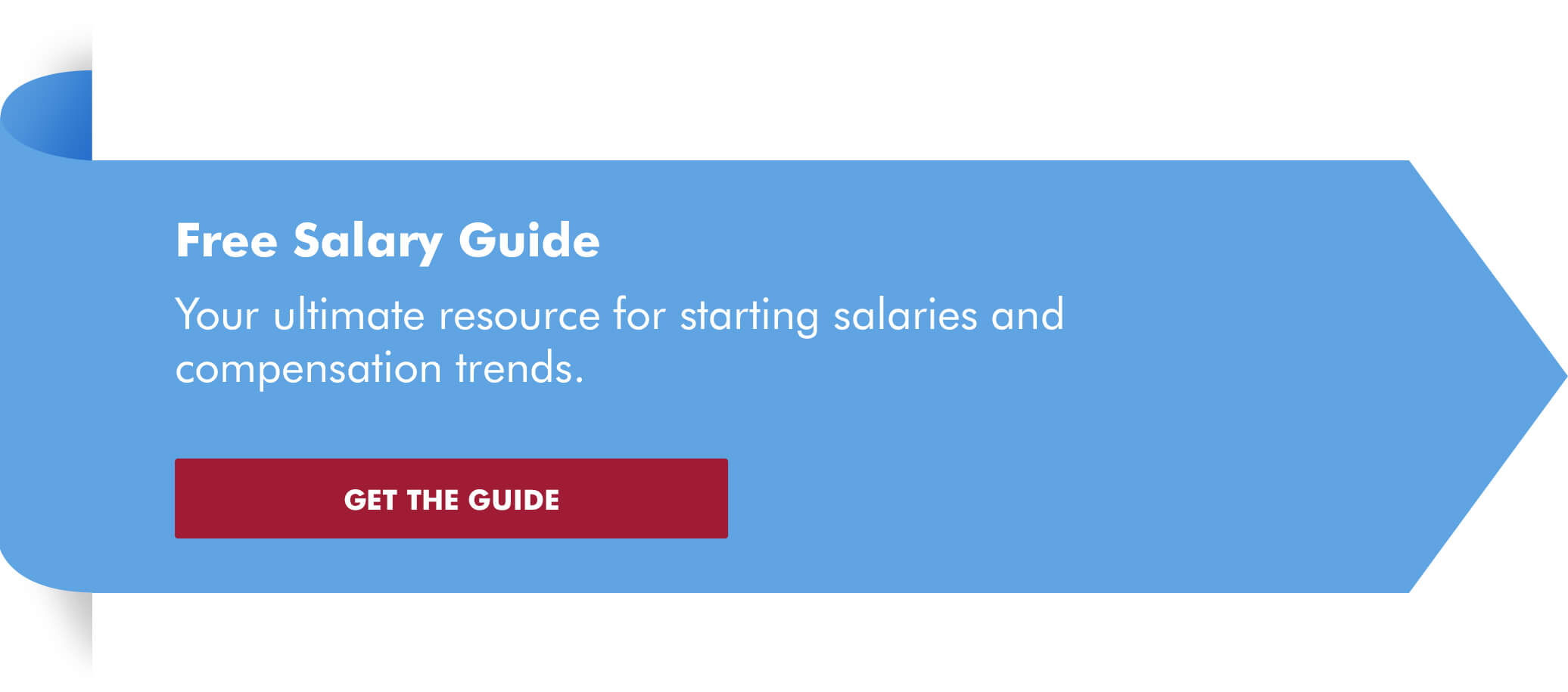By Megan Slabinski, District President, Robert Half
We can’t hire fast enough.
There aren’t enough good job candidates available.
We can’t afford to be so short-staffed.
Every recruiter I know hears these comments from clients daily. Without a doubt, this is one of the hottest markets I’ve seen in more than 20 years working in the recruiting industry.
Job seekers can be highly selective and don’t last long on the open market. But while many leaders focus on finding new talent right now, they may be neglecting a critical resource: their current employees.
Your best people possess institutional knowledge and skills that make them highly valuable. When one of them resigns, productivity and morale can take a hit; client service and satisfaction are also at risk if the seat remains vacant. Simply put, it’s a lot easier — and better for your business — to retain your employees than replace them.
Retention interviews: 4 tips for success
Conducting retention interviews can help you identify and address issues before they result in resignations. As you plan these meetings, consider these tips:
Tip #1. Meet with each employee separately.
Individual attention is paramount. One-on-one meetings will provide more insight and honest responses.
Tip #2. Avoid scheduling another meeting immediately after the discussion.
Give yourself some cushion in case the meeting runs a bit longer than expected. If the employee feels rushed or cut off, you might not get solid feedback. Candor tends to increase as these meetings progress; the most important comments may come at the very end.
Tip #3. Give your staff time to prepare.
Let each person know the points you’d like to cover in the meeting to allow time to think about these issues in advance. It’s fine to send some of the specific questions ahead of time, but always conduct the meeting by video or phone.
Tip #4. Prepare yourself.
These conversations can be difficult, and you may hear things during retention interviews that surprise or even upset you. Keep an even keel and avoid the temptation to react quickly or defensively. Doing so may cause the employee to clam up, and you’ll lose the opportunity to engage in valuable dialogue.
Also, find a space where you won’t be interrupted, and turn off mobile phone and computer notifications. Any distraction can be disruptive.
Questions to ask during retention interviews
You can customize the list of suggested questions below. Feel free to focus on some more than others, or develop your own, depending on the employee and situation:
- What do you look forward to when you begin work each day?
- What do you like least about working here? Most?
- What would make your job more satisfying?
- What can I do to best support you? What do you need more or less of from me?
- How do you best receive coaching?
- How do you best receive recognition at work?
- How long do you see yourself in this role?
- What might tempt you to leave or what would keep you here?
Always leave time for this last, and most important, question during retention interviews: What have I not asked that we should be talking about? You may uncover an entirely different issue that needs to be addressed.
Also, don’t hesitate to ask for more detail if an employee’s response is sparse. A simple “tell me more about that” may elicit the insight needed to help you make a slight but critical change that can increase the overall job satisfaction of your employee.
Make retention interviews a priority
Many employees feel underappreciated and underpaid right now, and they are considering jumping ship to secure a better career path. In a recent Robert Half survey, more than half (54%) of professionals who said they’d be looking for a new job in the next six months cited a salary boost as a top motivation for their decision. Also, 41% of workers responding to that same survey said they don’t feel they have a clear path for advancement at their company.
Retention interviews can be a powerful tool for helping you understand what your current team members need to feel confident about staying with your organization for the long term, whether that’s more compensation, different perks and benefits, a promotion, or something else. Your employees have stuck with you during one of the most challenging times in business and in life. Conducting retention interviews and making changes based on their input helps reinforce how much you, and the company, value their contributions.
Follow Megan Slabinski on LinkedIn.







